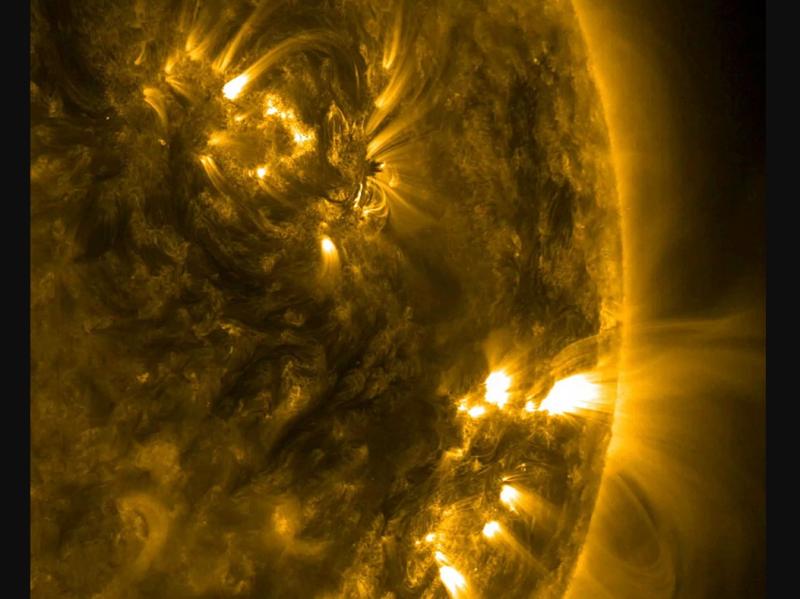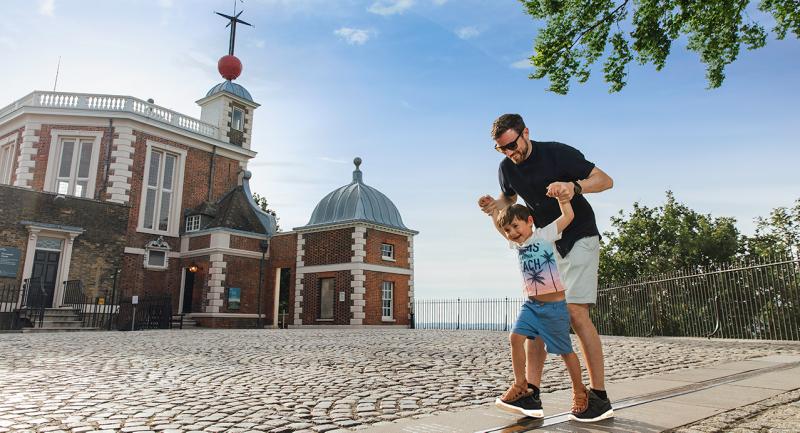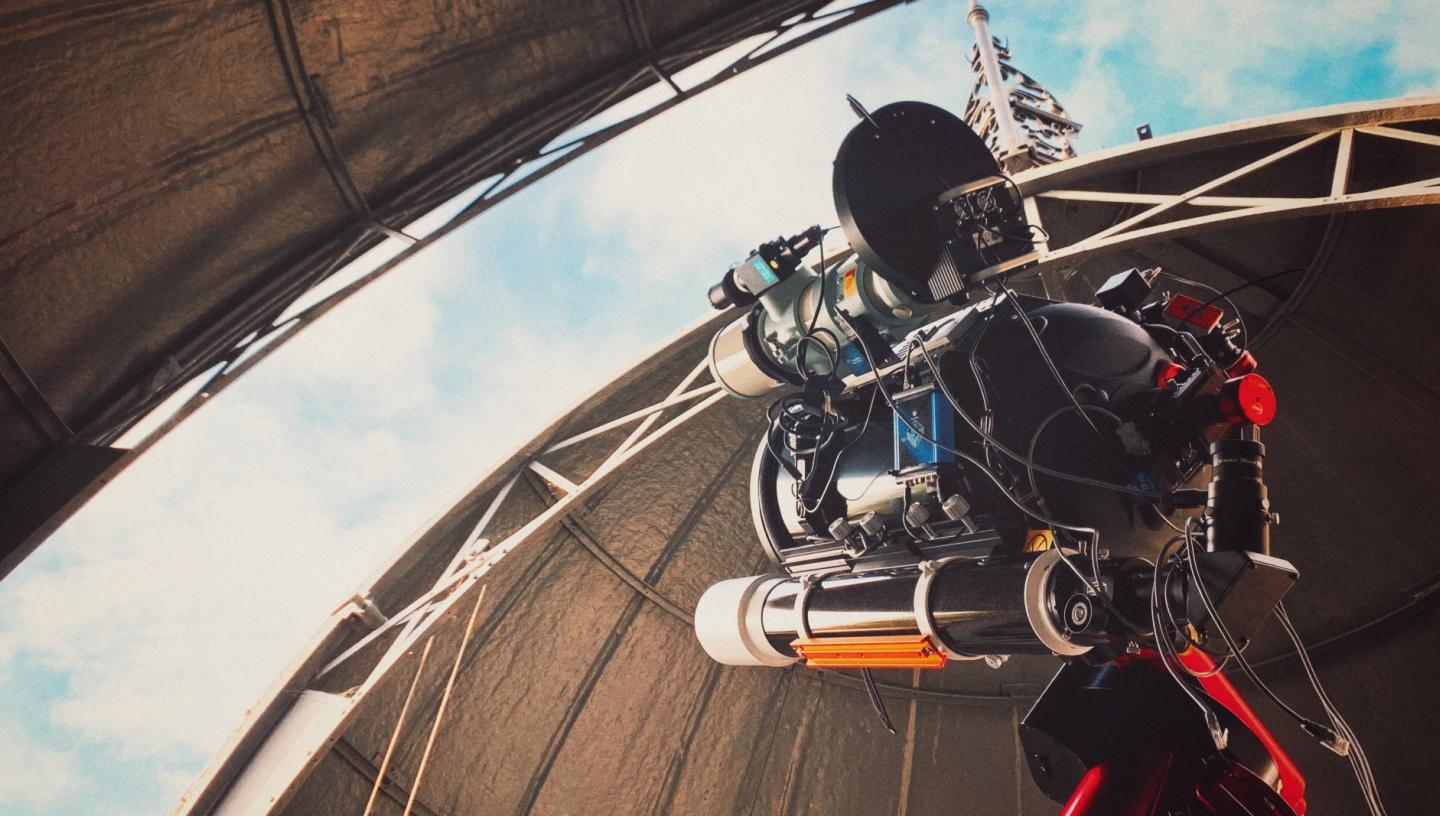
Space Live broadcasts combine the best in telescope technology with expert commentary from Royal Observatory astronomers.
Join our online stargazing events and discover the wonders of the night sky, with live footage from the Observatory's state-of-the-art Annie Maunder Astrographic Telescope.
Astronomers and space scientists are also on hand to explain exactly what's going on, and answer all your space and stargazing questions.

Greenwich's most advanced telescope
The small Altazimuth Pavilion at the Royal Observatory contains a big secret.
Housed within the original 19th century dome is the newest telescope to be installed at Greenwich: the Annie Maunder Astrographic Telescope, or 'AMAT' for short.
This 21st century instrument is called an ‘astrographic’ suite of telescopes because they are designed to be used photographically with digital cameras, rather than simply with the human eye.
AMAT can be used to capture detailed views of the planets and Moon, safely photograph the Sun and take filtered images of nebula and supernova remnants. It also allows us to share the wonders of the Universe online, helping us broadcast regular live observing events on YouTube and Facebook.
The Royal Observatory is part of Royal Museums Greenwich, a charity that relies on your support to maintain our telescopes and preserve our historic buildings. If you enjoy our live shows or want to support our astronomers’ important work, please donate today.
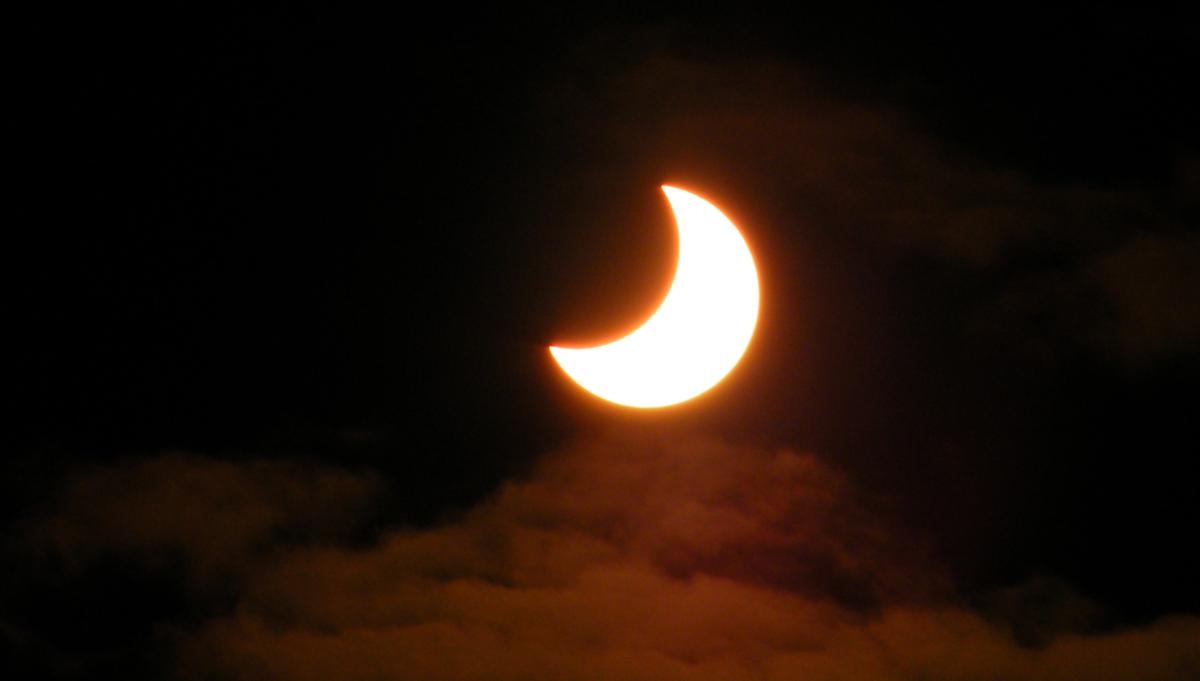
Partial solar eclipse live: March 2025
Royal Observatory astronomer Dr Greg Brown led us through the science of the Sun and solar eclipses during this special solar eclipse live feed.
The eclipse reached its 'maximum' - the moment when the greatest portion of the Sun is hidden - at 11.03am on 29 March 2025, with around 30-40% of the Sun obscured in the UK.
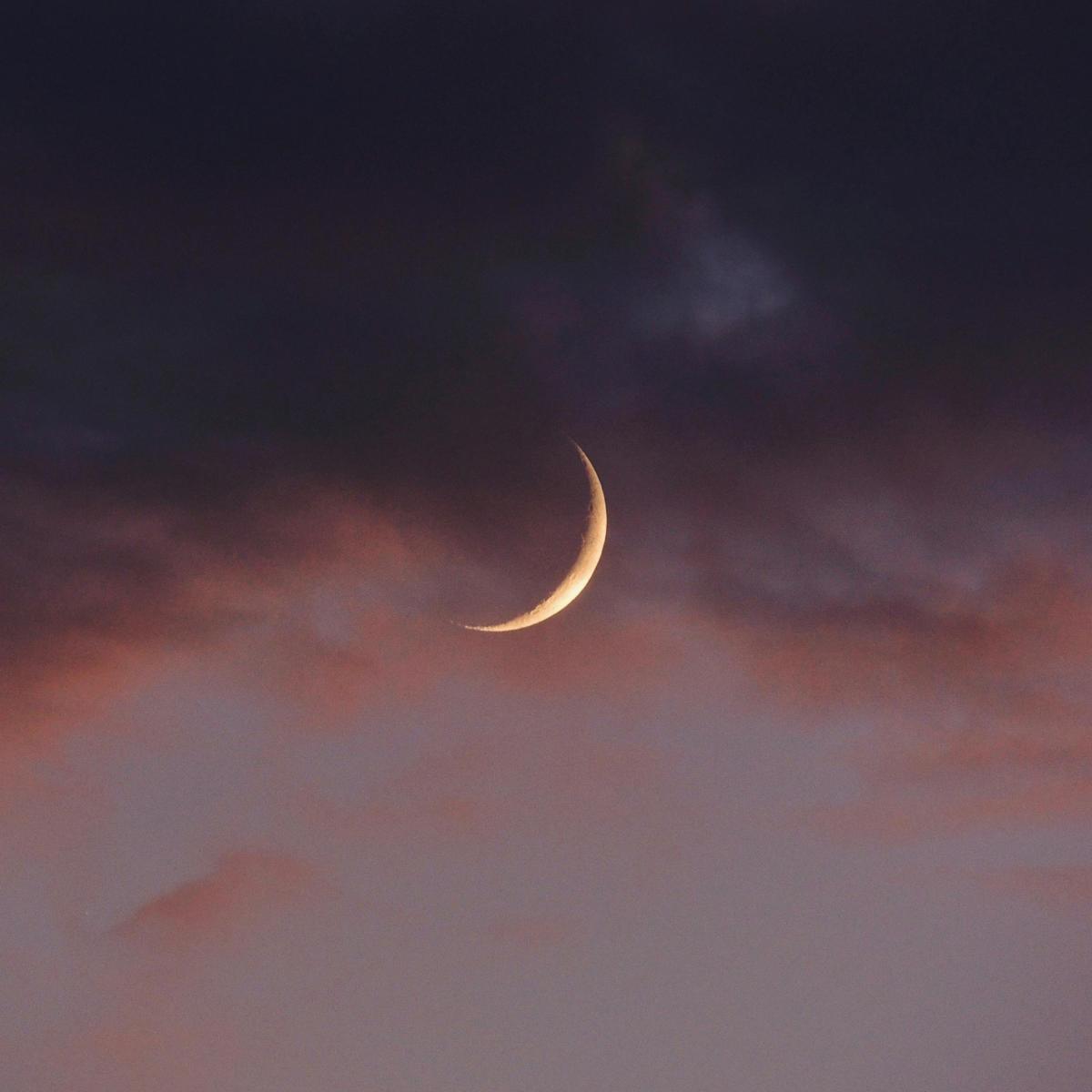
Ramadan moonsighting 28 February 2025
The Royal Observatory Greenwich and the New Crescent Society teamed up once again for a special live stream searching for the new crescent Moon which would signal the start of Ramadan 2025 in the UK.
Director of the New Crescent Society Imad Ahmed and Royal Observatory astronomer Jake Foster hosted the broadcast.
With a telescope on top of the Royal Observatory's roof scanning the evening sky, Imad and Jake were also joined virtually by New Crescent Society members nationwide.
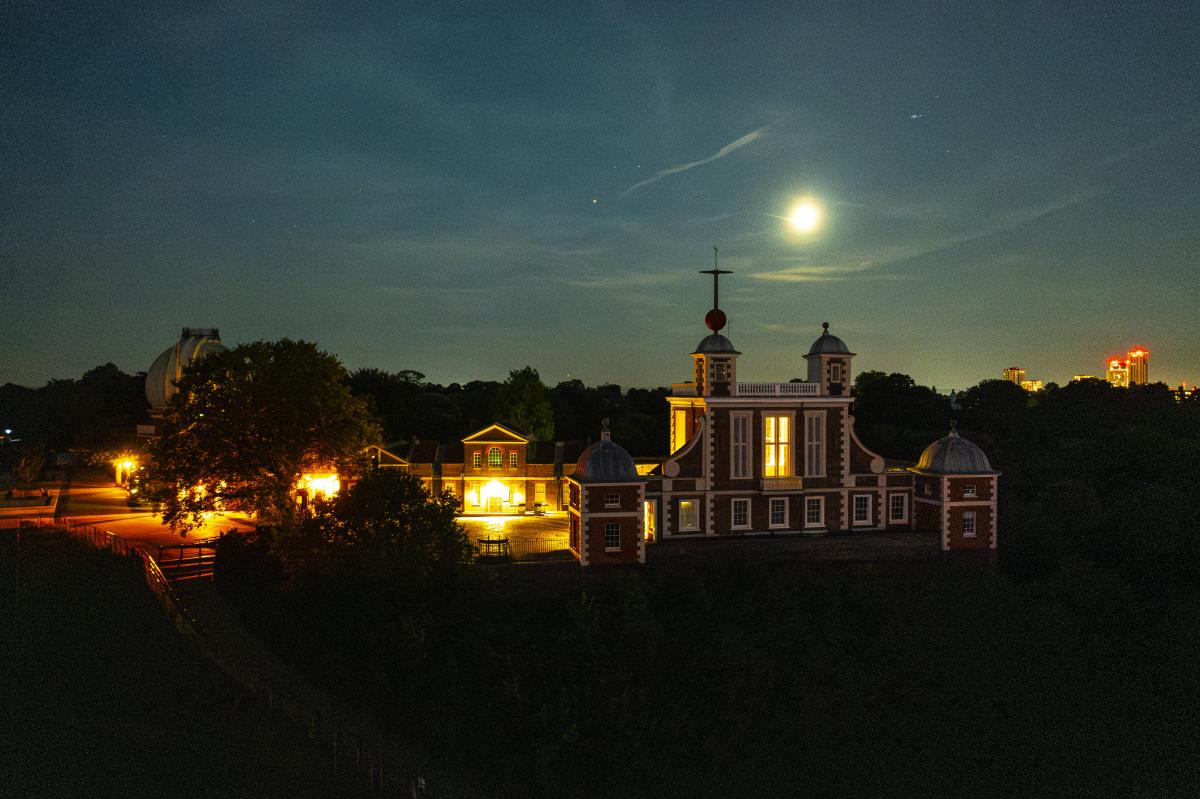
Tour the night sky
Take a whistle-stop tour of the night sky with Royal Observatory astronomers in this live stream first broadcast for National Astronomy Week 2025.
We scanned the skies using the Royal Observatory's modern telescopes and shared real-time observations of what we found.
From Jupiter and Mars to galaxies, nebulae and the Moon, find out what makes these objects so special and learn how to look for them for yourself.
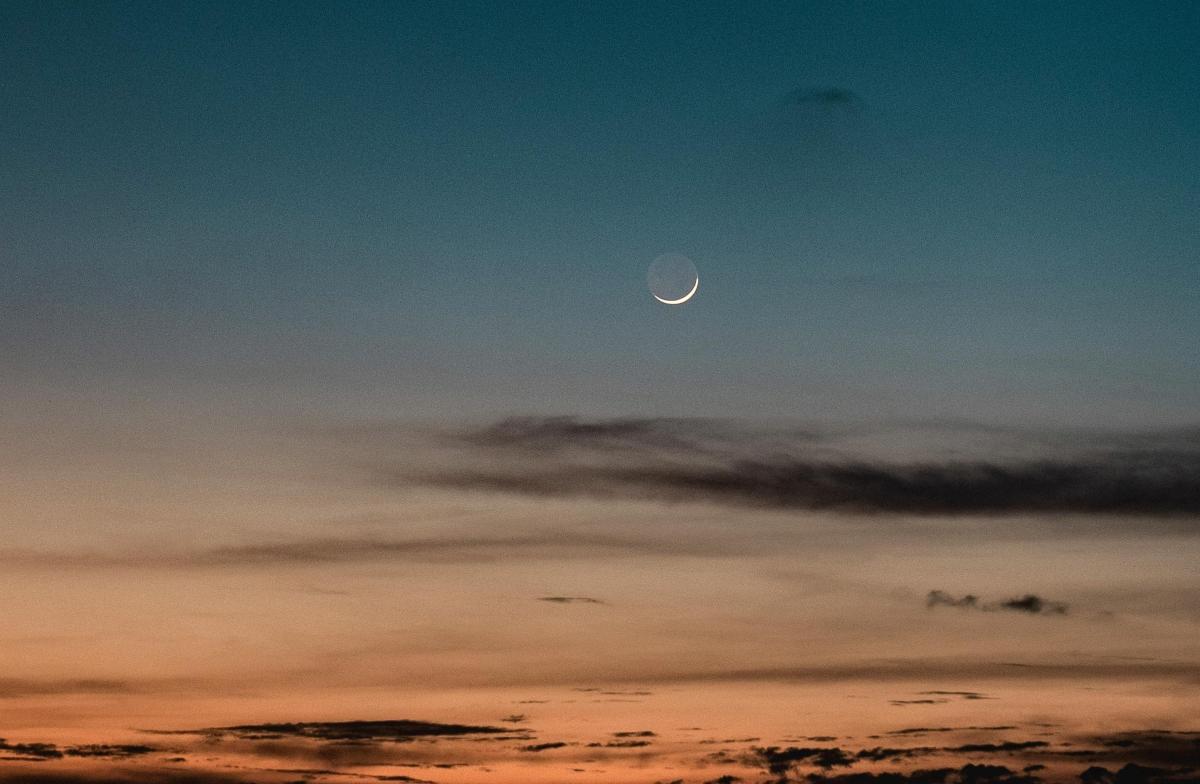
Eid moonsighting April 2024
Watch back our live broadcast from Tuesday 9 April when we scanned the evening skies for the new crescent Moon which meant the end of Ramadan and the start of Eid al-Fitr in the UK.
Director of the New Crescent Society Imad Ahmed and Royal Observatory astronomer Jake Foster hosted the broadcast. They were joined virtually by New Crescent Society members from across the country, who dialled in to report their own sightings of the Moon.
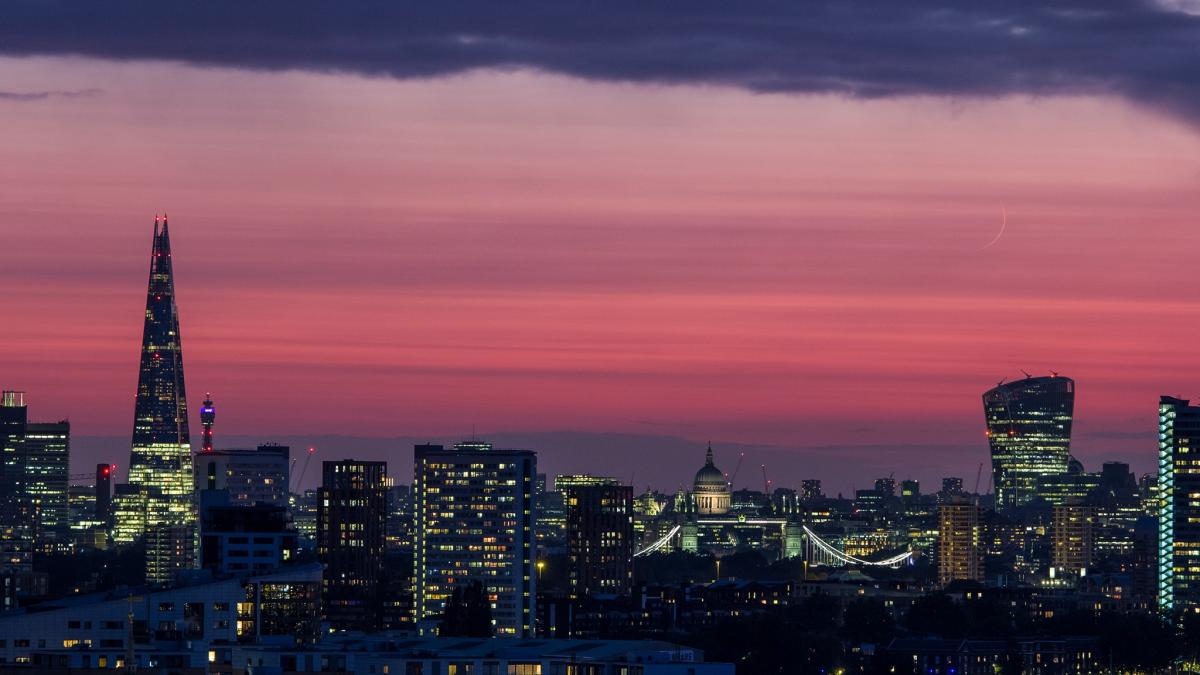
Ramadan Moonsighting March 2023
Watch back our live broadcast from 22 March as we attempted to sight the new crescent Moon which signalled the start of Ramadan in the UK.
Director of the New Crescent Society Imad Ahmed and Royal Observatory astronomer Jake Foster hosted the broadcast, covering topics including the links between astronomy and Islam, the Islamic calendar, and how you can sight the new crescent Moon for yourself.
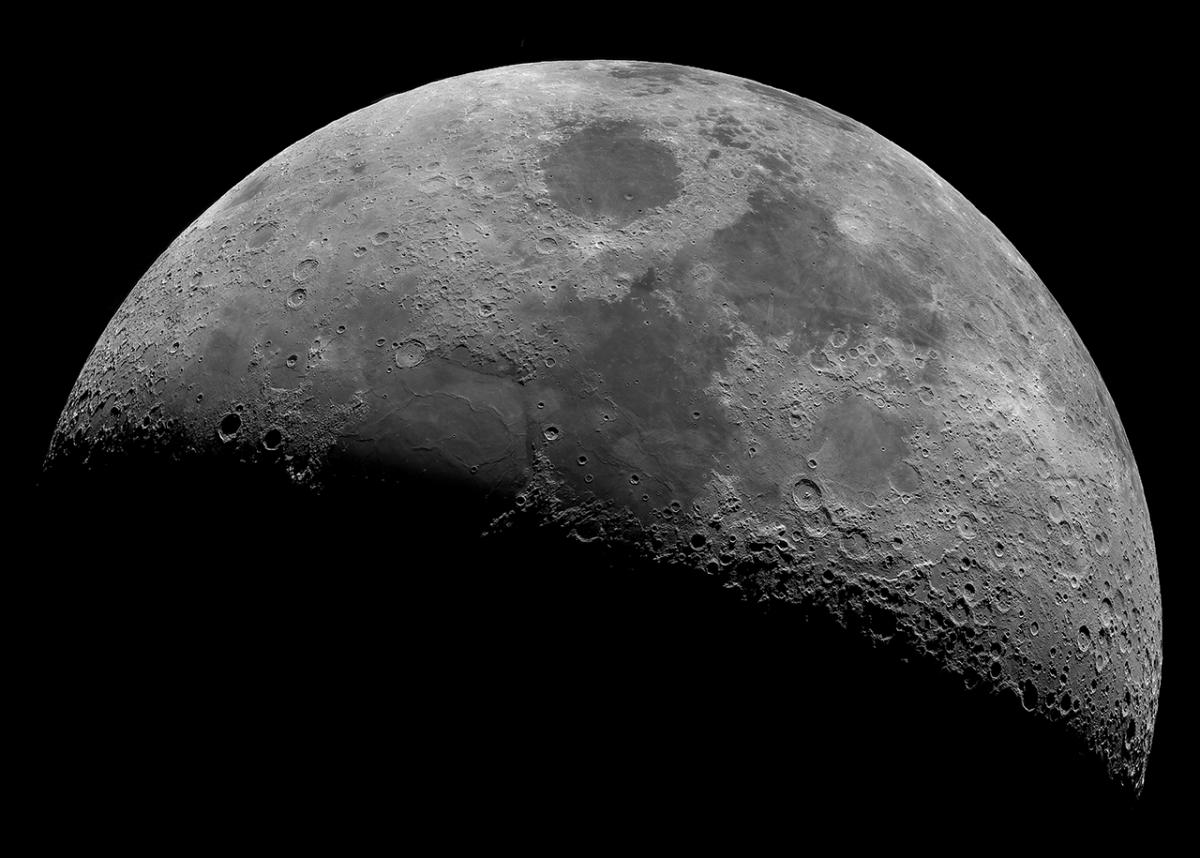
Moon viewing LIVE
It's been 50 years since humans last set foot on the Moon as part of the Apollo 17 mission. To mark the anniversary, join us online for a live observation of the lunar surface.
Hosted by Public Astronomy Officer Dr Gregory Brown, we'll look at the Apollo 17 landing site through the Royal Observatory's Annie Maunder Astrographic Telescope, and examine the giant leaps for mankind made by the Apollo programme.
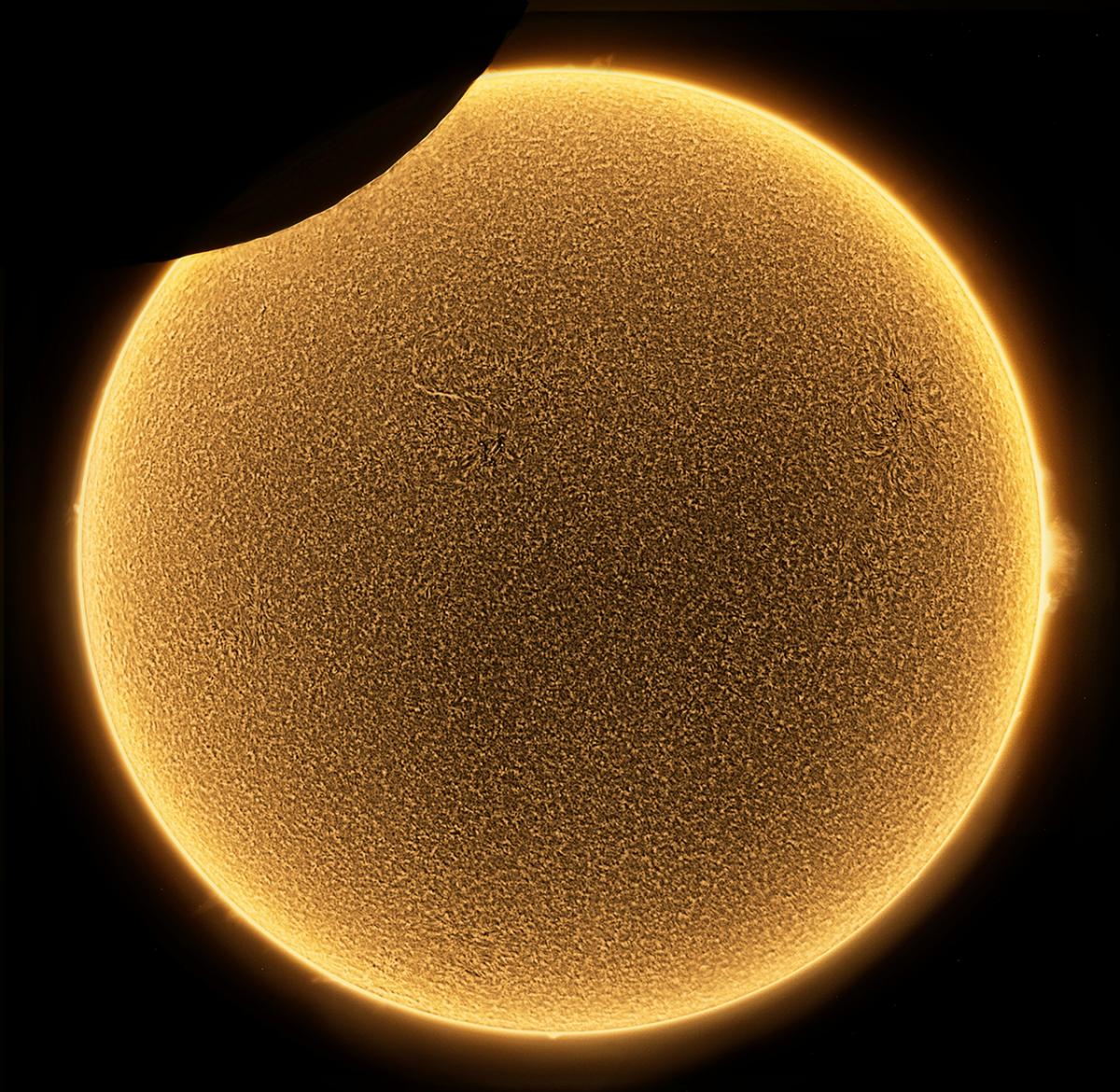
Solar eclipse October 2022
Featuring live telescope footage and expert astronomy commentary, this is one of the best ways to see the partial solar eclipse in the UK.
Watch the eclipse using the state-of-the-art Annie Maunder Astrographic Telescope housed at the Royal Observatory, and learn about the science of the Sun with public astronomy officer Jake Foster.
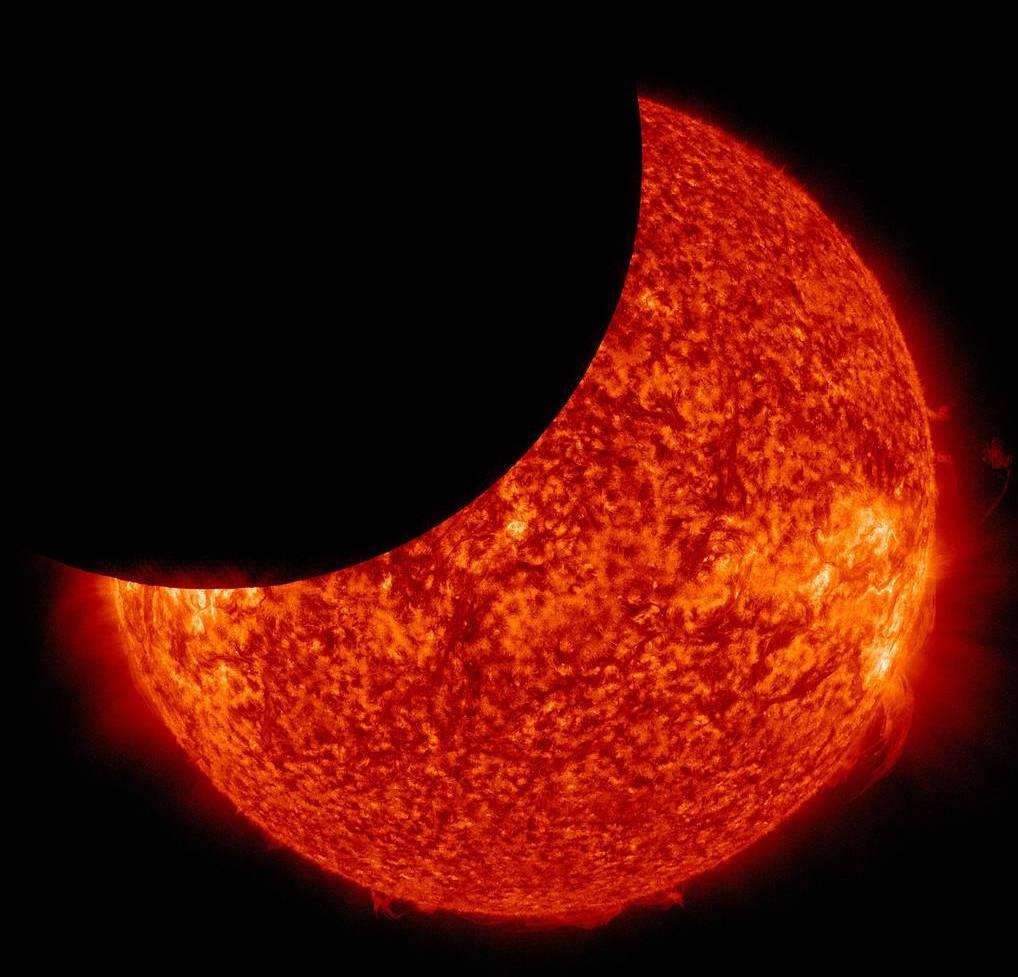
Solar eclipse June 2021
Broadcasting live from the Royal Observatory Greenwich, watch the UK's partial solar eclipse from 10 June 2021. Did the clouds clear in time?
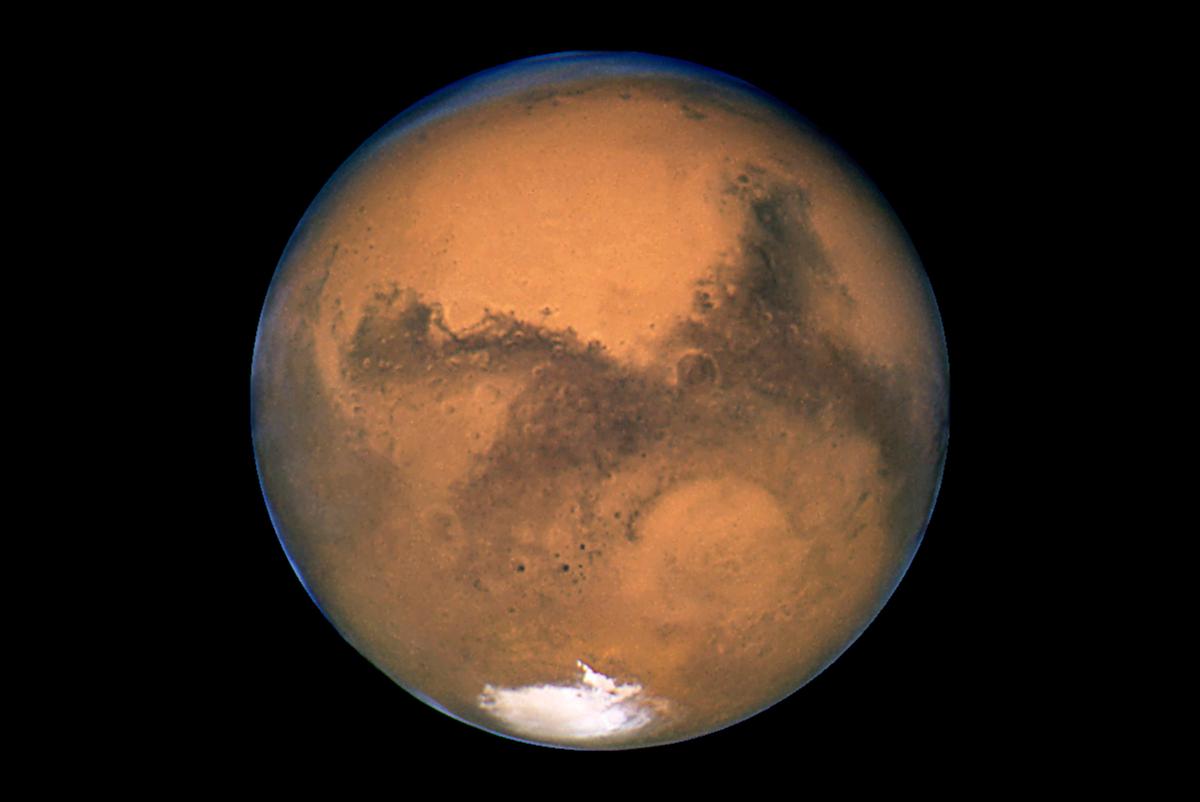
Observing Mars
Join astronomers from the Royal Observatory Greenwich as we observe Mars - part of National Astronomy Week with the Royal Astronomical Society.
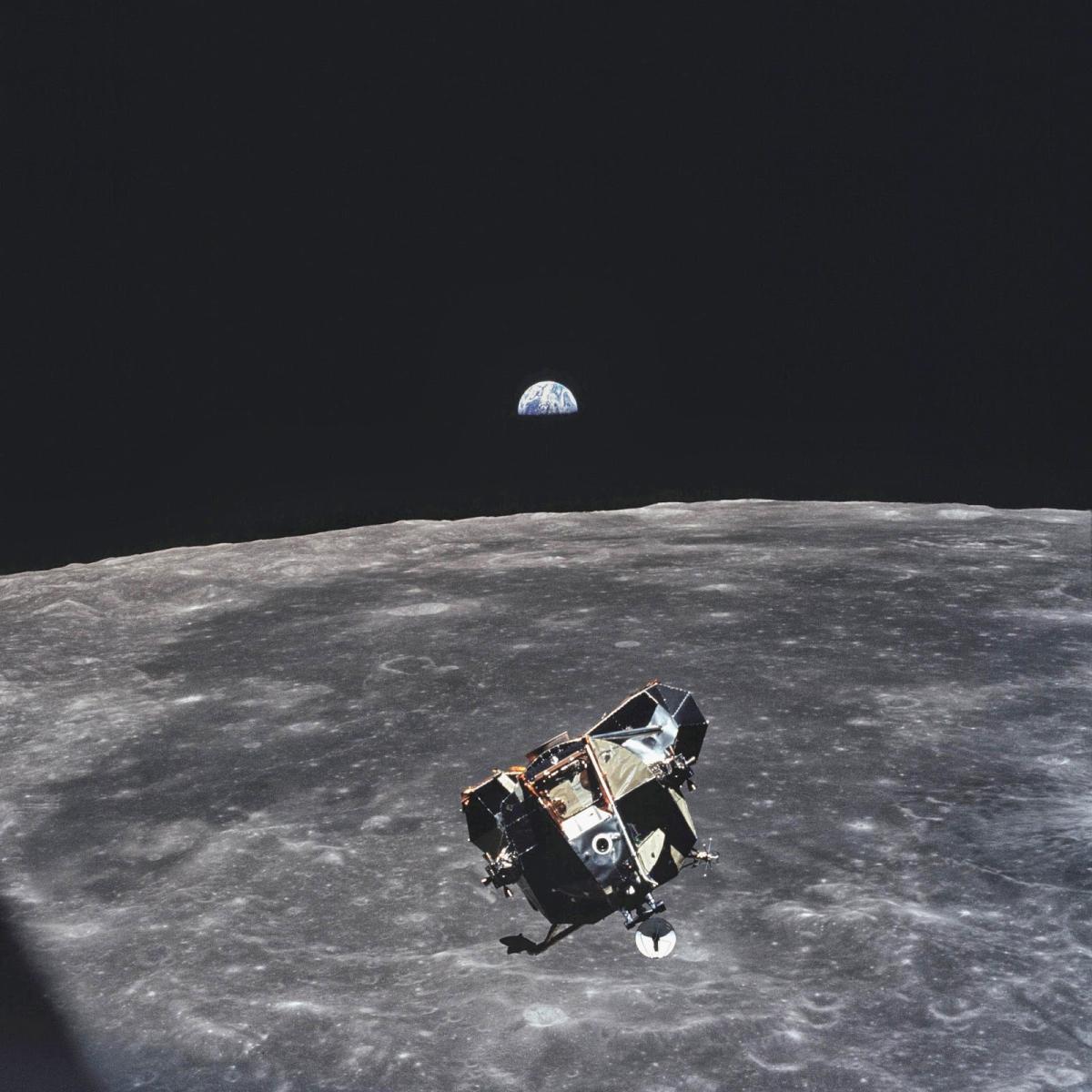
Apollo landing sites
Fifty years ago humans first set foot on the Moon - but what did we leave behind? Take a close-up view of the Apollo landing sites to find out...
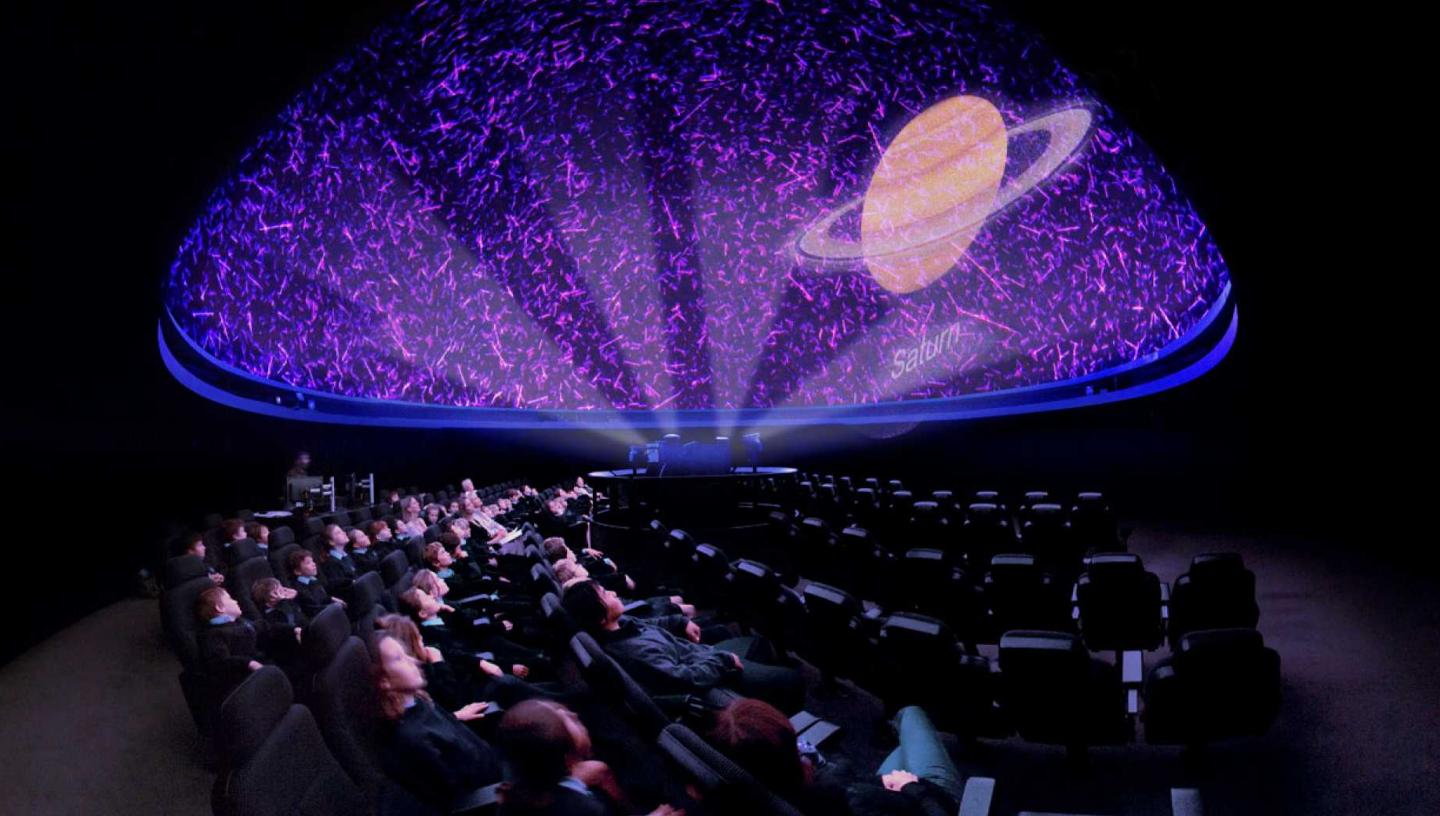
Explore the universe
Generously supported by

